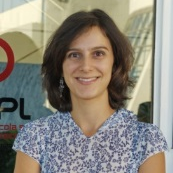Advances in Polymer Processing Technologies: In Honor of Prof. Dr. Geoffrey Robert Mitchell’s 75th Birthday
A special issue of Polymers (ISSN 2073-4360). This special issue belongs to the section "Polymer Processing and Engineering".
Deadline for manuscript submissions: 31 December 2024 | Viewed by 593
Special Issue Editors
Interests: materials; green economy; polymer processing
Special Issues, Collections and Topics in MDPI journals
Interests: structure-property relations in amorphous and semicrystalline polymers; polymer thermodynamics; neutron & X-ray scattering; computational modelling; polymer nanocomposites; electrical conductivity mechanisms of highly insulating materials
Special Issues, Collections and Topics in MDPI journals
Interests: applications of modeling and numerical simulation in health; industry and direct digital manufacturing applied to metals; polymers and ceramics
Special Issues, Collections and Topics in MDPI journals
Special Issue Information
Dear Colleagues,
This is a Special Issue in honour of Professor Geoffrey R. Mitchell’s 75th Birthday and a celebration of his research and achievements. Professor Mitchell’s research spans a wide range of polymer science and technology over the last 40 years at the University of Cambridge, University of Hokkaido, University of Reading, Centre for Rapid and Sustainable Product Development, Polytechnic University of Leiria and the University of Karnatak. The development of diffraction methods for the understanding of polymeric structures, the continuous improvement of neutron scattering techniques for amorphous and semi-crystalline polymers, his pioneering work on the understanding of the structure–property relations of liquid crystalline and electrically conducting polymers and his important developments of additive manufacturing and 3D printing are some of the highlights of his long and highly successful career.
Prof. Dr. Mahadevappa Kariduraganavar
Prof. Dr. Thomas Gkourmpis
Dr. Paula Pascoal-Faria
Dr. Fred J. Davis
Guest Editors
Manuscript Submission Information
Manuscripts should be submitted online at www.mdpi.com by registering and logging in to this website. Once you are registered, click here to go to the submission form. Manuscripts can be submitted until the deadline. All submissions that pass pre-check are peer-reviewed. Accepted papers will be published continuously in the journal (as soon as accepted) and will be listed together on the special issue website. Research articles, review articles as well as short communications are invited. For planned papers, a title and short abstract (about 100 words) can be sent to the Editorial Office for announcement on this website.
Submitted manuscripts should not have been published previously, nor be under consideration for publication elsewhere (except conference proceedings papers). All manuscripts are thoroughly refereed through a single-blind peer-review process. A guide for authors and other relevant information for submission of manuscripts is available on the Instructions for Authors page. Polymers is an international peer-reviewed open access semimonthly journal published by MDPI.
Please visit the Instructions for Authors page before submitting a manuscript. The Article Processing Charge (APC) for publication in this open access journal is 2700 CHF (Swiss Francs). Submitted papers should be well formatted and use good English. Authors may use MDPI's English editing service prior to publication or during author revisions.
Keywords
- technologies using photoactive polymers
- the use of electric and magnetic fields
- stress/strain-induced transitions
- in situ time-resolving characterisation of polymer processing
- X-ray scattering
- neutron scattering
- muon spectroscopy
- computational modelling
- additive manufacturing
- 3D printing
- stereolithography
- selective laser melting
- powder bed methods
- fibre spinning
- spin coating
- dip coating
- electrochemistry
- electrostatic spraying
- digital twins
- digitalisation
- injection moulding
- hot pressing
- sheet forming
- vacuum forming
- film blowing
- uniaxial and biaxial deformation
- shear flow
- polymer crystallization from isotropic and anisotropic melts
- electrospinning
- force spinning
- nanostructured surfaces









